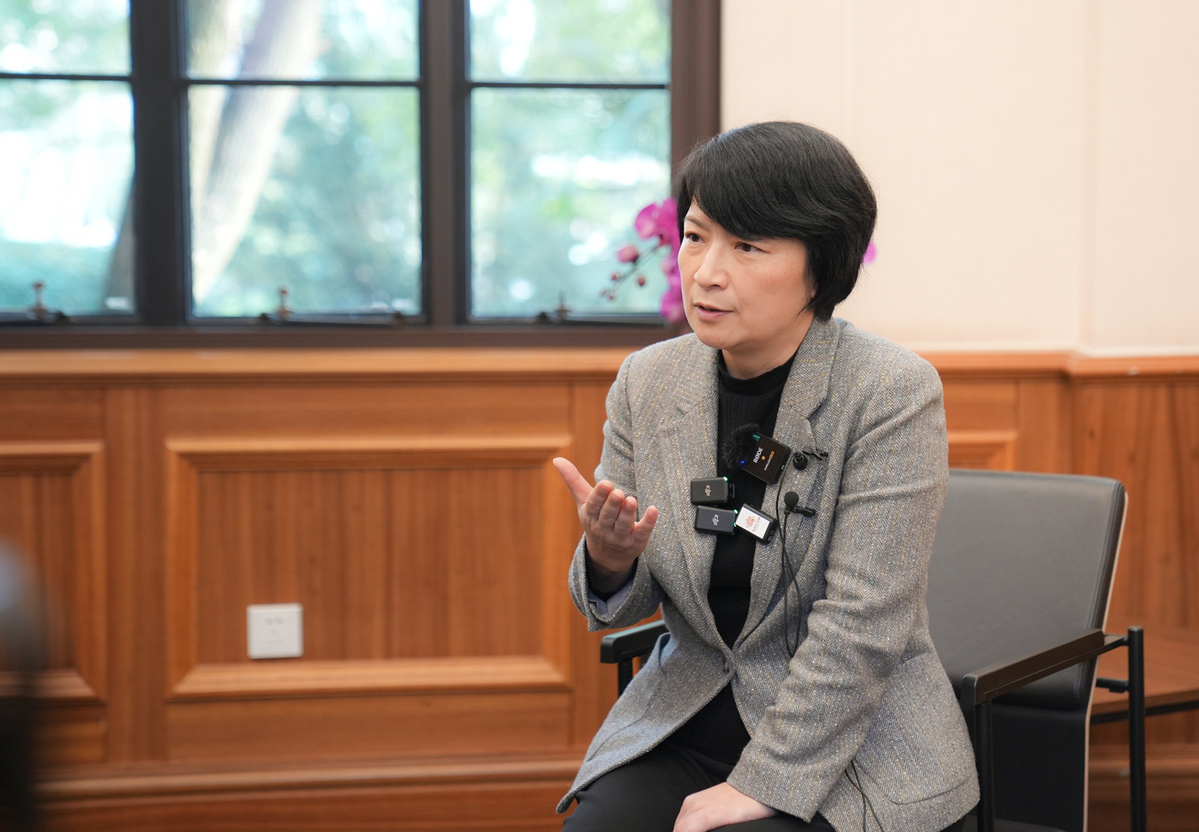Social and emotional cultivation crucial for youth


In order to ensure that the next generation can effectively adapt to society through education, it is essential to foster the holistic development of youths in all aspects of life, including in moral, intellectual, physical and aesthetic fields. Yet, amid the ongoing discourse on education reform and the pursuit to strengthen the foundation of education in the country, the emphasis on cultivating social and emotional competence among adolescents is far from enough.
In China, promoting comprehensive human development is an essential part of the education policy. As we navigate the complexities of the modern era, the vision outlined in "China's Educational Modernization 2035" is a fundamental shift toward prioritizing comprehensive development.
It is imperative to nurture successive generations of individuals that excel not only in cognitive abilities but also in non-cognitive skills. Social and emotional competence, often referred to as soft skills, play a pivotal role in the comprehensive development of human beings. They encompass vital aspects such as achievement of goals, interpersonal cooperation and emotional management, contributing to children's character building, critical thinking, cooperative ability and innovative capacity.
However, despite the vital importance of social and emotional competence, there exists a glaring gap in the education landscape. The prevailing emphasis on cognitive ability and exam scores has overshadowed the importance of nurturing these essential noncognitive skills among adolescents. The lack of emphasis on cultivating social and emotional competence among adolescents is further exacerbated by the absence of a top-level, targeted policy and institutional framework to systematically integrate social and emotional competence into the education system.
Moreover, as we try to overcome the challenges and seize the opportunities created by the rise of artificial intelligence, the need to prioritize the cultivation of social and emotional competence among adolescents becomes even more pronounced. In an era where knowledge and skills are rapidly evolving, social and emotional competence has emerged as an element of foundational competency essential for navigating an increasingly complex world. The global shift toward an "affective turn" in educational reform underscores the growing recognition of the pivotal role played by social and emotional competence in shaping the future of education.
Despite the global trends of technology revolution such as AI breakthroughs, Chinese educators should do much more in both research and practice related to the cultivation of social and emotional intelligence among adolescents. From an international perspective, over the past 20 years, the "pivot to emotion" has increasingly become the direction of global education reform. International organizations such as the United Nations Educational, Scientific and Cultural Organization (UNESCO), the Organisation for Economic Co-operation and Development (OECD), the World Bank, as well as countries including the United States, the United Kingdom, Australia, Germany and Japan, have vigorously promoted the development of social and emotional skills in both policy and practice.
While international initiatives such as the "Survey on Social and Emotional Skills" of the OECD have gained traction, domestic efforts remain in the nascent stages. There is an urgent need therefore to make concerted efforts to bridge this gap and leverage China's expertise and advantages in this field to improve the education system.
Moving forward, several key recommendations can prompt us to prioritize the cultivation of social and emotional competence among adolescents. First, we must strengthen research and policy development in this area, treating it as a national priority and integrating it into education policy planning at all levels.
Second, schools must play a key role as the primary venue for cultivating social and emotional competence among adolescents. By initiating pilot programs and collaborative networks, schools can serve as incubators for innovative approaches to social and emotional learning.
And third, we must empower teachers to cultivate social and emotional competence among adolescents, by incorporating relevant training into pre-service and in-service training programs for teachers.
In conclusion, prioritizing the cultivation of social and emotional competence among adolescents is not just a matter of educational reform; it is a strategic imperative for building a better future. By recognizing the importance of these essential skills and taking targeted measures, we can ensure that the education system equips students with the tools they need to thrive in a fast-changing world.
It is time to adopt a holistic approach to education — one that fosters not only academic excellence but also emotional resilience, social competence and a sense of purpose among children. Only by doing so can we better unlock the full potential of the country's youths and build a brighter future for the next generations.
The author is Party secretary of East China Normal University.
If you have a specific expertise, or would like to share your thought about our stories, then send us your writings at opinion@chinadaily.com.cn, and comment@chinadaily.com.cn.
































